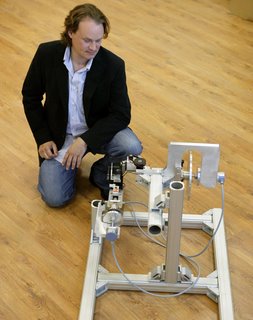Nice to read an article which is has a positive outlook for a change. It's all too easy these days to get depressed when you turn on the news or open a newspaper and get bombarded about the seemingly constant wars, scaremongering about terrorism and corrupt business leaders and politicians.
No doubt the Internet has had huge impact on spreading truth. Never before has it been so easy to get a message across without it being filtered by the corporate media giants. Although the Internet is now under attack in the US with a new communications bill which if it is passed could be the first step towards strangling independent voices. Pray it does not happen!
From Zmag:
In researching a new film, I have been watching documentary archive from the 1980s, the era of Ronald Reagan and his "secret war" against Central America. What is striking is the relentless lying. A department of lying was set up under Reagan with the coy name, "office of public diplomacy". Its purpose was to dispense "white" and "black" propaganda - lies - and to smear journalists who told the truth. Almost everything Reagan himself said on the subject was false. Time and again, he warned Americans of an "imminent threat" from the tiny impoverished nations that occupy the isthmus between the two continents of the western hemisphere. "Central America is too close and its strategic stakes are too high for us to ignore the danger of governments seizing power with military ties to the Soviet Union," he said. Nicaragua was "a Soviet base" and "communism is about to take over the Caribbean". The United States, said the president, "is engaged in a war on terrorism, a war for freedom".
How familiar it all sounds. Merely replace Soviet Union and communism with al-Qaeda, and you are up to date. And it was all a fantasy. The Soviet Union had no bases in or designs on Central America; on the contrary, the Soviets were adamant in turning down appeals for their aid. The comic strips of "missile storage depots" that American officials presented to the United Nations were precursors to the lies told by Colin Powell in his infamous promotion of Iraq's non-existent weapons of mass destruction at the Security Council in 2003.
Whereas Powell's lies paved the way for the invasion of Iraq and the violent death of at least 100,000 people, Reagan's lies disguised his onslaught on Nicaragua, El Salvador and Guatemala. By the end of his two terms, 300,000 people were dead. In Guatemala, his proxies - armed and tutored in torture by the CIA - were described by the UN as perpetrators of genocide.
There is one major difference today. That is the level of awareness among people everywhere of the true purpose of Bush and Blair's "war on terror" and the scale and diversity of the popular resistance to it. In Reagan's day, the notion that presidents and prime ministers lied as deliberate, calculated acts was considered exotic; Nixon's Watergate lies were said to be shocking because presidents did not lie outright.




